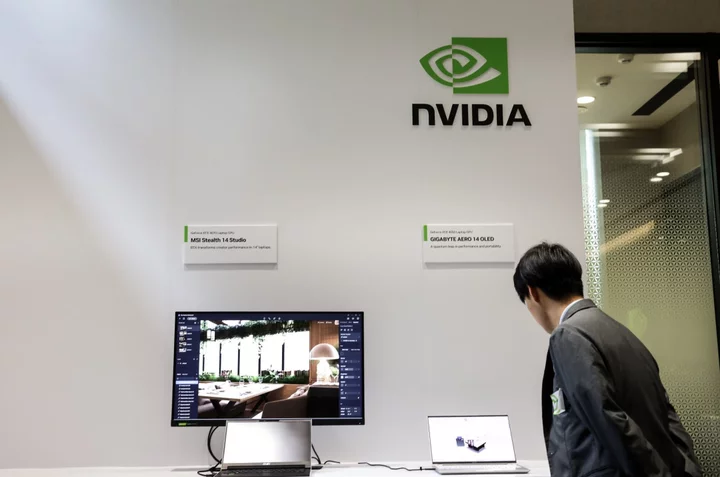Nvidia Corp. acknowledged that the US may impose stronger restrictions on the sale of chips to China and warned that such a move will hurt American companies in the long term, reiterating a broadly held view among top chipmakers.
Nvidia Chief Financial Officer Colette Kress, speaking on a conference call with analysts late Wednesday, argued that existing curbs on the sale of AI chips and high-end components were already having the desired effect. The company is currently prohibited from offering its high-end graphics processing unit, or GPU, in the country — though it sells a less powerful version of the chip in China.
“Over the long term, restrictions prohibiting the sale of our data center GPUs to China, if implemented, will result in a permanent loss of an opportunity for the US industry to compete and lead in one of the world’s largest markets,” Kress said following Nvidia’s earnings announcement. The finance chief said she was addressing reports on the potential for increased regulations “on our exports to China.”
Read More: How US and Allies Are Trying to Rein In China Tech
In the more immediate term, though, stricter rules wouldn’t take a heavy toll on Nvidia’s finances, she said.
“Given the strength of demand for our products worldwide, we do not anticipate that additional export restrictions on our data center GPUs, if adopted, would have an immediate material impact to our financial results,” Kress said.
Kress’s boss, Chief Executive Officer Jensen Huang, recently joined counterparts from Intel Corp. and Qualcomm Inc. in a visit to Washington to argue for a pause in escalations of export controls. The Biden administration says restrictions are needed to safeguard US national interests and prevent the advancement of China’s military.
Bloomberg has reported that further restrictions are being considered that would limit Nvidia’s ability to ship to the Asian nation — the biggest market for semiconductors.
Read More: Huawei Building Secret Network for Chips, Trade Group Warns
Nvidia, benefiting from an industrywide race toward artificial intelligence computing, delivered a third-straight sales forecast that surpassed Wall Street estimates Wednesday. That fueled a 6% share rally in late trading. The company gets about two-thirds of its sales from outside the US, though it doesn’t disclose revenue in China.
The leading association of global chip companies, meanwhile, is warning that Huawei Technologies Co. is building a collection of secret semiconductor-fabrication facilities across China — a shadow manufacturing network that would let the blacklisted company skirt US sanctions and further the nation’s technology ambitions — Bloomberg News has reported.









